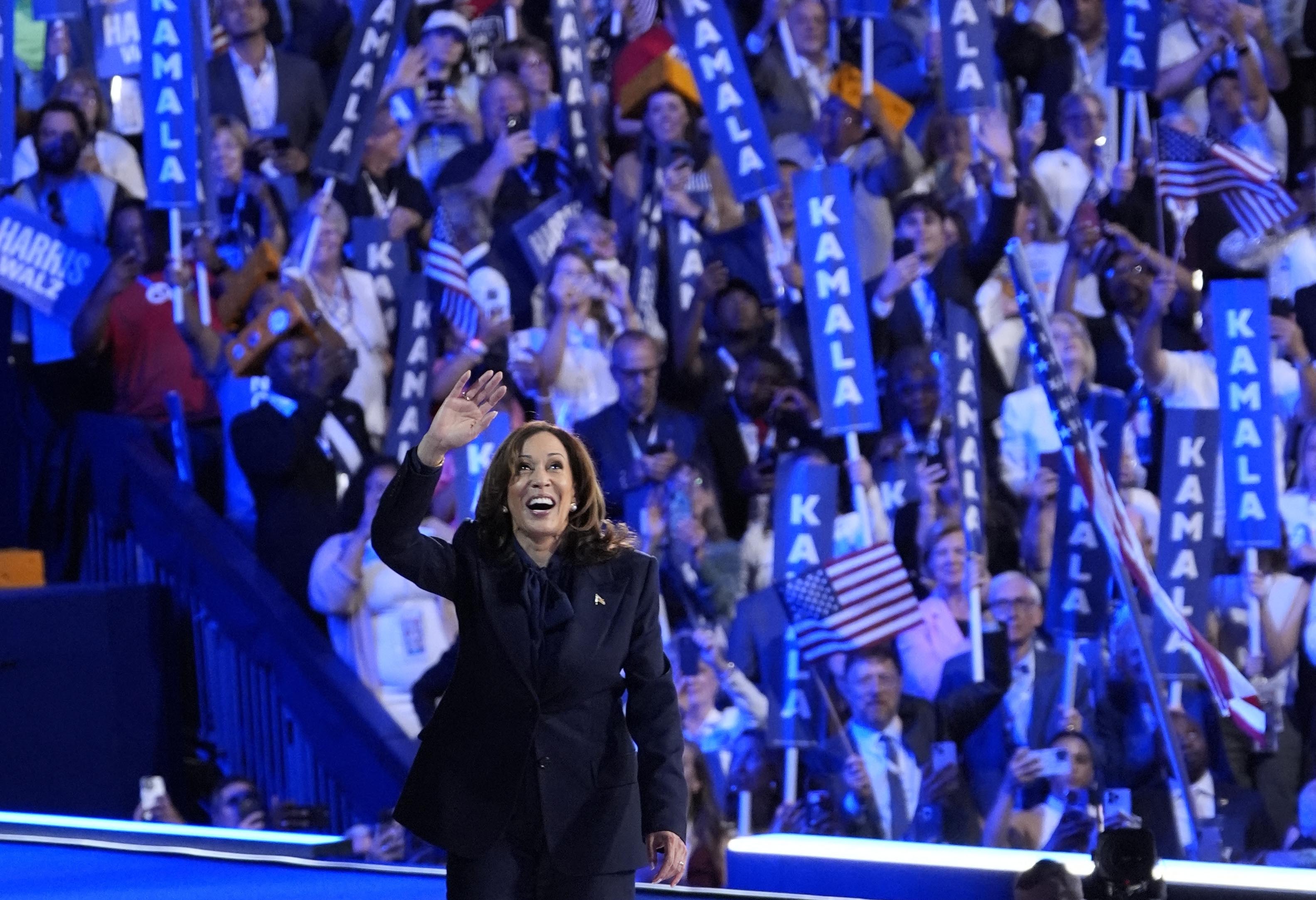But Kamala Harris faces a formidable foe
Vice President Kamala Harris is now the Democratic Party’s official candidate for president. In her acceptance speech, she introduced herself as if she were a complete unknown even though as VP she has been the person elected to take over as president if the elderly Joe Biden were to die or become unable to carry out his functions.
The office of US VP is not comparable to the 1960 office of VP of the Republic of Cyprus – now defunct – whose role was as an integral member of a power-sharing executive between Greek Cypriots and Turkish Cypriots, originally conceived to enable a bicommunal state to prosper by checks and balances between the two communities on the island. The system required huge quantities of trust and goodwill to work: none existed, and the office fell into disuse after the bicommunal RoC collapsed in 1963.
In the US, a candidate for president chooses a running mate to run for president to succeed him in the event of his death or incapacity and to share executive power – at the absolute discretion of the president. The VP is a member of the cabinet and the national security council in his or her own right and the non-voting president of the Senate but otherwise his or her performance as VP depends entirely on how much executive authority the president allows him or her.
Kamala Harris has now taken over as the Democrat Party’s candidate on the grounds of Biden’s incapacity to campaign. It is very odd that she is so little known given she has been VP for three-and-a-half-years and given that Biden is so elderly. Biden told the Democratic Party Convention that choosing her as his VP was the best decision he ever made but that was because he had to bow out gracefully during her crowning as his successor, rather than because he allowed her to shine in the office of VP.
Her time as Biden’s deputy was in complete contrast to VP Dick Cheney’s during the presidency of George W Bush. Cheney made it a condition of running with Bush that he would exercise extensive executive powers which Bush was only too happy to delegate as he treated his role as president with a light touch. Events like 9/11 early on in Bush’s first term in 2001 conspired to enhance Cheney’s role and the cabal around him that included Defence Secretary Donald Rumsfeld and his deputy Paul Wolfowitz, who decided to invade Iraq irrespective of the wishes of Secretary of State Colin Powel and national security adviser Condoleezza Rice.
If the film Vice is anything to go by, Cheney became the most powerful VP ever during Bush’s two terms between 2000 and 2008 and even arrogated to himself, as the other member of the presidency, extensive executive powers in matters of national security and foreign relations to override the law under the constitutionally suspect unitary executive theory.
There have been a number of VPs who graduated to the top job or had it thrust upon them. Harry Truman succeeded to the presidency as VP when President Franklin Roosevelt died near the end of World War II in 1945. VP Lyndon Johnson became president after John Kennedy was murdered in 1963. Richard Nixon, who became president in 1968, had been Dwight Eisenhower’s VP for eight years in the 1950s. VP Gerald Ford succeeded Nixon when he resigned in 1974. George Bush Senior had been Ronald Reagan’s VP before he became president in 1989; and, of course, Joe Biden had been Barack Obama’s VP for eight years before he became president in 2021.
So the omens are good for VP Harris and although Donald Trump is politically a formidable opponent her put-down of him in her acceptance speech last Thursday as an unserious man whose election to the presidency would have very serious consequences was masterful. Like the British prime minister flaunted his time as Director of Public Prosecutions (DPP), Kamala Harris is making much of her previous stints as district attorney and attorney-general in California that suit her contest with Donald Trump who is a convicted felon.
The choice the Americans face between a former prosecutor and a convicted felon, however, is not as stark as it appears. Trump appealed against his conviction that might well succeed if the Appeals Court rules that his claim that hush payments were legal expenses was not beyond the outer perimeter of his official authority and consequently immune from prosecution. In any case, Trump’s supporters are not put off by his convictions. They are not even troubled by his gross interference with the smooth transfer of power in January 2021.
There is something rotten in the United States if half its population is indifferent to their president impeding the lawful transfer of power and VP Harris is tempting fate in her claim that it is the greatest nation on earth.
Also, a prosecutor candidate for president is not the unmitigated blessing she presents. US prosecutors are often ruthless in the pursuit of getting elected district attorneys and state attorneys-general. They engage in all sorts of cynical manoeuvres including plea bargaining in which defendants are forced to plead guilty even if they are not guilty on pain of many years in prison if they fight and are found guilty.
Ms Harris was clever to identify with The People in American criminal cases, but she needs to make her mark with detailed meaningful policies, avoid meaningless generalisations and limit her prosecutor past to handling Donald Trump’s impudence.
Alper Ali Riza is a king’s counsel in the UK and a former part time judge







Click here to change your cookie preferences